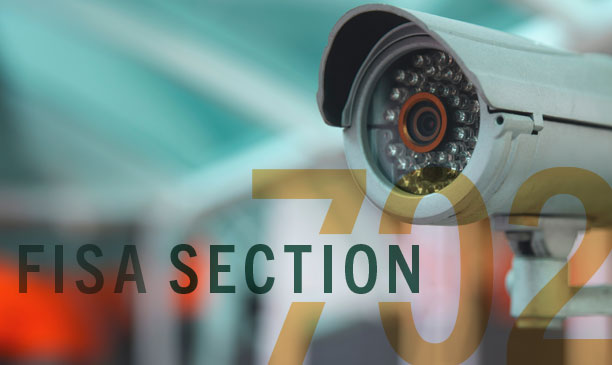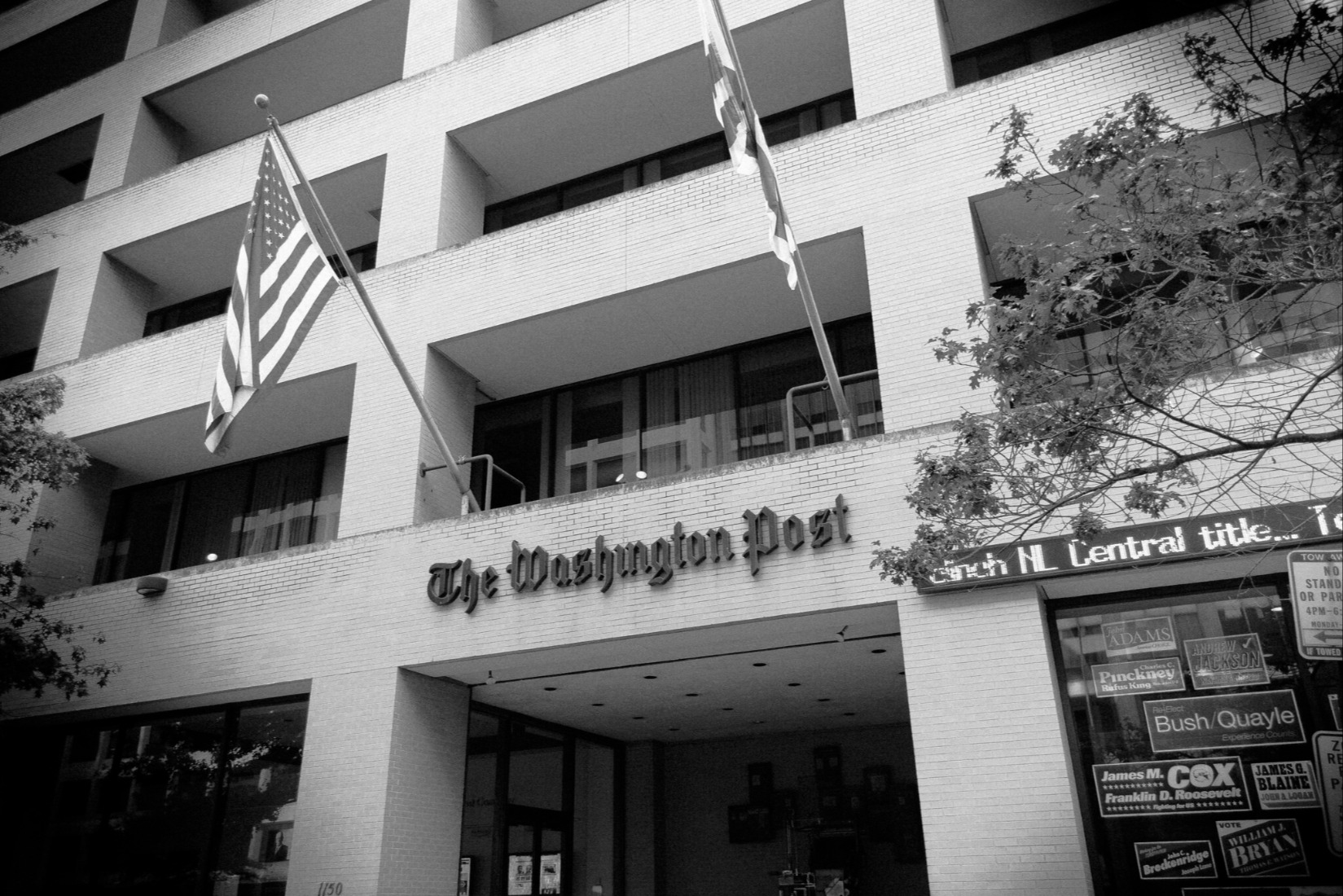PCLOB Takes on Executive Order 12333 Surveillance
The Privacy and Civil Liberties Oversight Board yesterday had a public meeting yesterday to, as its web site describes it, "discuss and vote on a proposed plan for its review of counterterrorism activities conducted by the Intelligence Community under Executive Order 12333." Here's video of the meeting:
}
The Privacy and Civil Liberties Oversight Board yesterday had a public meeting yesterday to, as its web site describes it, "discuss and vote on a proposed plan for its review of counterterrorism activities conducted by the Intelligence Community under Executive Order 12333." Here's video of the meeting:
The Privacy and Civil Liberties Oversight Board has a statutory mandate to review actions taken by the executive branch to protect the nation from terrorism, ensuring that the need for such actions is balanced with the need to protect privacy and civil liberties. Pursuant to this mandate, the Board has begun examining counterterrorism-related activities conducted by the Intelligence Community under Executive Order 12333. Given the range of such activities, the Board expects that it will periodically examine specific E.O. 12333 counterterrorism activities throughout its existence. The Board’s initial efforts, however, will be limited as follows. The Board has received, or will soon conclude the process of receiving, overview briefings on E.O. 12333 activities from each Intelligence Community element. During the next stage of its inquiry, the Board will select two counterterrorism-related activities governed by E.O. 12333, and will then conduct focused, in-depth examinations of those activities. The Board plans to concentrate on activities of the CIA and NSA, and to select activities that involve one or more of the following: (1) bulk collection involving a significant chance of acquiring U.S. person information; (2) use of incidentally collected U.S. person information; (3) targeting of U.S. persons; and (4) collection that occurs within the United States or from U.S. companies. Both reviews will involve assessing how the need for the activity in question is balanced with the need to protect privacy and civil liberties. The reviews will result in written reports and, if appropriate, recommendations for the enhancement of civil liberties and privacy. The Board’s goal is to complete both reports by the end of 2015. While the Board anticipates that these reports will be largely or entirely classified, it will assess whether particular information about the activities under review warrants public-interest declassification, making targeted requests for such declassification as appropriate, using existing IC declassification procedures. The Board also plans to issue a public report that explains E.O. 12333 at a high level, focusing on how the legal framework established by the executive order and its implementing procedures governs the collection, use, retention, and dissemination of information concerning U.S. persons. To the extent feasible in an unclassified document, the report will draw on the two in-depth reviews and the overview briefings described above for descriptive examples of how E.O. 12333 and its implementing procedures shape the privacy and civil liberties impacts of the Intelligence Community’s efforts to prevent terrorism. As appropriate, and to the extent that the Board can draw conclusions based on its overview briefings and in-depth reviews, the public report also will assess the adequacy of E.O. 12333’s safeguards for privacy and civil liberties. The Board’s goal is to issue this report by the end of 2015, recognizing that any requests for public-interest declassification will affect the report’s release date. Depending on the contents of the two in-depth reports described in the previous paragraph, they might be formatted as classified annexes to the public report, rather than as standalone documents. Board staff will continue to work with the CIA and NSA regarding how the Board will proceed to identify suitable topics for its in-depth reviews. Board staff also will continue to work with other Intelligence Community elements to coordinate the remaining overview briefings and any follow-up information requests. Such requests, if made, will be geared toward solidifying the Board’s understanding of the basic counterterrorism-related functions of those elements and their associated E.O. 12333 procedures.Members of the board issued separate statements. Here they are:
- David Medine's Separate Statement.
- Rachel Brand's Separate Statement.
- Elisebeth Bridget Collins' Separate Statement.
- James X. Dempsey's Separate Statement.
However, I will vote against the document because it does not foreclose some directions in which this project could go. My primary concern is with the third report contemplated by this document, which is a more general report about Executive Order 12333 and its implementing structures. The exact nature and purpose of this third report remain unclear to me. The text of the document before the Board today leaves open the possibility that the third report might attempt to make judgments about the overall adequacy of the privacy and civil liberties protections in Executive Order 12333 and its implementing rules. I could not support that. It simply would not be possible to analyze, for example, the adequacy of oversight mechanisms for all 12333-governed activities -- many of which fall outside our statutory jurisdiction -- after having reviewed only two programs. We could certainly analyze the adequacy of oversight mechanisms in each program we reviewed. But if we tried to extrapolate from our reviews of two programs to arrive at more general conclusions, we would risk being incomplete or simply wrong. We also would risk undermining the institutional credibility that I believe we have a duty to establish and steward. I would have liked this document to clarify that the third report will not do that. The fact that that clarification was not included in this document gives me significant pause. I am also concerned about the document's statement that the third report will be public. Whether or not the report can be written unclassified will depend on its contents. If, as the document before the Board contemplates, the Board drew upon examples from the classified programs we reviewed, then it is not clear that this third report could be published entirely unclassified. This Board's ability to effect concrete change in particular programs will be diminished if we foreclose the possibility of making classified recommendations to the agencies and to the President. I hope that my concerns will not be borne out, and that all three reports contemplated by this document will turn out to be reports that I can support. I look forward to working with my colleagues in reviewing programs governed by Executive Order 12333 and in drafting the resulting reports, and I hope that I will be able to vote to adopt those reports when the time comes. My final point is procedural. The Board continues to lack basic internal processes. It has been extremely challenging to start a new agency from scratch with no parent entity, but the time has come to finalize procedures that will enable us to operate as a mature organization. This must be a top priority for the Board in the near term. As the Board works to adopt these important procedures, it will be essential not only that they provide a workable mechanism for arriving at a clear Board decision, but that they recognize and respect the rights and responsibilities of each Board Member as an independent, Senate-confirmed officer. Again, I look forward to working with my colleagues to that end.
Benjamin Wittes is editor in chief of Lawfare and a Senior Fellow in Governance Studies at the Brookings Institution. He is the author of several books.
More Articles
-

It’s Time to Renew Section 702 of FISA Permanently
As the April deadline looms, Congress risks letting one of America’s most valuable intelligence tools wither. -

Lawfare Daily: Unearthing and Reckoning with the Intelligence Excesses of the Cold War
What can be learned from the intelligence community’s Cold War excesses? -

Putting Press Freedom to the Test
The FBI’s search of a Washington Post reporter’s home raises questions about the protections afforded to journalists in leak cases.





